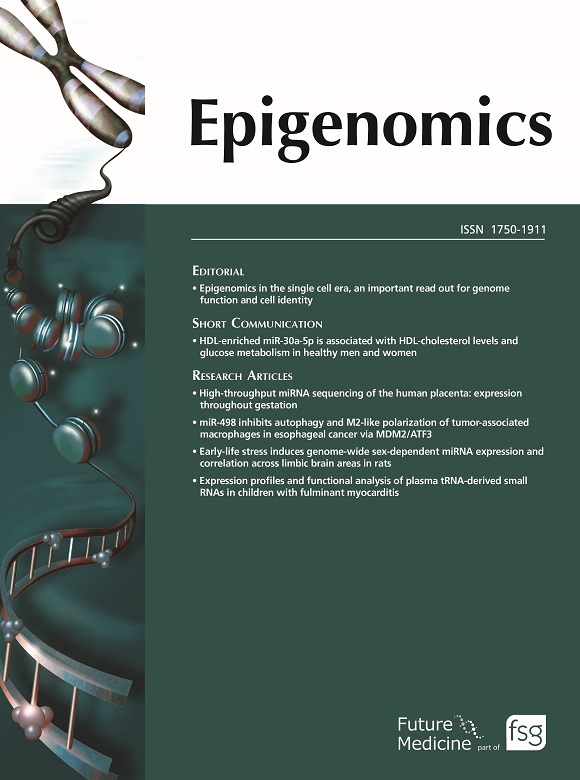投稿信息
稿件收录要求
One of the most exciting developments to come out of the completion of the Human Genome Project in 2003 was the emergence of the new field of epigenomics – the study of epigenetic modification at a level outside the single gene. While epigenetics refers to the study of single genes or groups of genes, epigenomics refers to the wider global analyses of epigenetic changes across the entire genome.
The blueprint of our genes may have been defined by the Human Genome Project but the rules governing them are prescribed by the science of epigenomics. Therefore, the origins of health and susceptibility to disease are, in part, the result of epigenetic regulation of the genetic blueprint.
Epigenomics promises to elucidate the inner workings of the genome. The power of this new discipline lies in its promise to provide us with novel insights into the inner workings of our genomes through its potential to detect quantitative changes, multiple modifications and the regulatory sequences outside that of our gene sequences. The advent of numerous epigenomics strategies has emerged to detect large numbers of DNA methylation variations and chromatin modifications – two mechanisms that are at the core of epigenomic research.
With the creation of the Human Epigenome Project, many research groups have joined forces to further elucidate and exploit new technologies to better understand the basis of normal development and human disease.
Epigenomics provides the forum to address the rapidly progressing research developments in this ever-expanding field; to report on the major challenges ahead and critical advances that are propelling the science forward. The journal delivers this information in concise, at-a-glance article formats – invaluable to a time constrained community.
Substantial developments in our current knowledge and understanding of genomics and epigenetics are constantly being made. In recent years, Epigenomics has responded to the shift in research focus from solely DNA methylation and cancer onto non-coding RNAs, bioinformatics, neuroepigenetics, immunoepigenetics, in utero environment/pre- and peri-natal environment, pollutants and other environmental stressors, behavioural epigenetics, and much more.
Epigenomics provides a critical overview of the latest and most significant advances as they unfold and explores their potential application in the clinical setting.
Articles published in Epigenomics cover key areas such as:
- Array technologies in epigenomics
- Cancer epigenetics
- Chromatin remodelling
- Cutting-edge epigenomic techniques & tools
- Data analysis, algorithms and computational approaches
- Diagnosis and prognosis in human disease
- DNA methylation profiling
- Environmental epigenetics
- Epigenetic mechanisms and effects
- Genomic imprinting
- Population-scale studies
- Therapeutic implications of the epigenome




